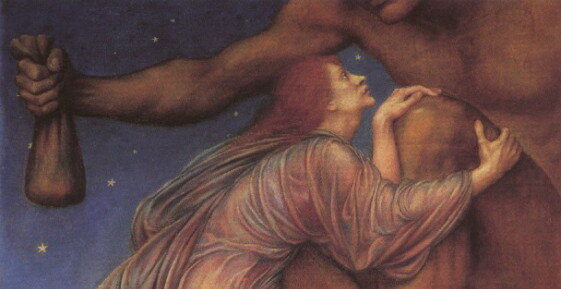Shirin Ebadi: Democracy demands free speech

Democracy cannot take root in countries such as Iran unless individuals enjoy freedom of expression, says Shirin Ebadi
The struggle in undemocratic, especially Muslim, countries to cultivate a political culture that would allow democracy to flourish has been a long one. Iranians, for example, have tried for more than a century to install democracy. Since the terrorist attacks of September 11, 2001, the clamour for democracy in Islamic nations and in the Middle East, in particular, has become louder. America and Britain now claim that their real purpose in invading Iraq was, all along, to bring democracy to it and then to the greater Middle East.
Even if we accept their premise (which I do not), you cannot install democracy by force. Moreover, even if, as a result of invading and occupying Iraq and threatening other nations (notably Syria and Iran), some elections did take place in the Middle East, this would not be genuine democracy.
If elections are held in the Middle East, the result is unlikely to be moderate, enlightened and forward-looking governments. Thanks to decades of western support for Middle Eastern dictatorships, America’s one-sided support of Israel and the invasion of Iraq, truly democratic elections in countries such as Saudi Arabia and Pakistan might bring radical Islamists to power. Given the popular support for these extremists, what should we do to promote genuine and lasting democracy?
The elements of democracy
Truly-free elections must have three attributes. They must be democratic: anyone who is willing to work within the system or wishes to change that system through peaceful means can elect or be elected. They must be fair: the ruling group should not use the state’s power and resources to its own advantage. They must be competitive: those who stand for election and their policies must offer a broad choice. We will, however, only know if these conditions hold through the free flow of information and knowledge – both social and political. This is only possible if genuine freedom of expression and opinion exists.
In addition to a free press, the internet and non-governmental organizations (NGOs) have recently helped spread information and educate people about their fundamental human rights. This has provoked governments to attempt countermeasures of censorship.
A topology of censorship
Democracy has no meaning if citizens are not free to express their opinion without fear of prosecution. There are many types of censorship.
Official censorship is enforced by undemocratic governments. It exists when governments have the power to prevent publication of books or when they attempt to control the press. They often pass special laws restricting the press. They also try to prevent the opposition from owing its own press.
Official censorship in Iran has a long and ignominious history. Shah Mohammad Reza Pahlavi and his father Reza Shah imposed strict controls on the press. Although these were lifted after the Islamic revolution, the new regime reverted to strict censorship in 1981, quashing books perceived as opposing official ideology.
Publishing any book now requires a written permit from the Ministry of Culture and Islamic Guidance. Even worse, the legal framework around censorship – as unfair as it may be – is not fixed. Instead, enforcement depends on the personal views of the reviewer and on his or her interpretation of the law. Bizarrely, a book can be approved for publication, but the prosecutor and the Special Court for the Press might still decide to prosecute the writer or translator and publisher. Recently, the government said it would no longer allow books that discuss nihilism, secularism and feminism – it views the equality of men and women as a corrupt western idea.
Iran’s independent press fares no better than its publishers. Over the past few years, more than 140 publications, from newspapers to magazines, have been shut down by the judiciary. Some of Iran’s best and brightest writers and investigative journalists as well as many political dissidents and human rights advocates, people such as Nasser Zarafshan, Akbar Gangi, Abdolfattah Soltani and Hossein Ghazian, are behind bars. Their sin is exercising their right to freedom of expression and opinion by writing and speaking about important social and political issues. Reza Alijani, Hoda Saber, Taghi Rahmani and Roya Tolouei are free after posting very large bails, but are in legal limbo.
Self-censorship
Where official censorship is strict and severely-imposed, self-censorship is often pervasive. Aware that a permit is required, the writer or artist attempts to produce something that will escape the censor’s blue pen.
Self-censorship, therefore, destroys artistic creativity and ruins literary talents.
When there is a national crisis, like a threat to the national security – real or conjured-up by the ruling party – journalists may restrain themselves for fear of being labelled unpatriotic. This behaviour was evident in America in the run-up to the invasion of Iraq. Many American journalists never examined critically the so-called evidence of Saddam Hussein’s alleged stockpiles of weapons of mass destruction and the supposed link between his regime and al-Qaeda. They toed the administration line. The New York Times even published a series of front-page articles sourced from inside the Bush administration. We now know that most, if not all, of the claims made in those articles were false.
Another, much cruder act of censorship almost took place. Had it happened, it would have had catastrophic consequences. According to recent reports, George Bush discussed with Tony Blair, the British prime minister, the idea of bombing the Qatar headquarters of al-Jazeera, one of the most popular television stations in the Arab world. Al-Jazeera had invited the wrath of the Bush administration by being critical of what was going on in Iraq.
Hidden censorship
The third type of censorship is not as transparent as the first two, but is much more forceful in many ways. It exists in some western nations, especially the US. In this case, the government does not intervene directly in the publication of books or the operation of the press. Nobody is jailed for the sin of writing or expressing his or her opinion. The censorship is enforced by controlling the mass media and large and influential newspapers and publishing companies. The control is imposed by a few large shareholders and owners who think alike and believe in more or less the same ideology. In this system, there is practically no way for independent publishers, newspapers and intellectuals to compete, at the national level, with the media giants.
It is almost impossible for any independent thinker to compete with or oppose the concentration of power. That is why we see so few people like Noam Chomsky and Michael Moore.
The digital divide and censorship
The tremendous digital gap between the industrialized nations and the developing world is another manifestation of hidden censorship. While Europeans enjoy one computer for every two people, there is only one for every 3,000 Angolans. According to the United Nations, at least 50 million people have never seen a telephone or fax machine. Meanwhile, in advanced countries, tens of thousands of websites have been created, providing another powerful tool for propaganda in many developing countries, especially Muslim ones.
Undeveloped or underdeveloped nations simply don’t have the means to respond in kind. Under such conditions, how can the writers and other intellectuals of such nations engage in debate with their counterparts in the advanced nations? How can Muslim intellectuals counter American propaganda that Muslims dislike America because they hate freedom or the western way of life, whereas what they oppose is America’s decades-long support of really oppressive regimes in the Middle East and its one-sided support of Israel?
Therefore, while writers, journalists and other intellectuals in undemocratic countries must constantly struggle against severe censorship, they must also grapple with poverty and the digital divide in order to be heard around the world.
The digital divide may also explain why most of the prestigious artistic and literary prizes go to the artists and writers in advanced nations. These competitions are not fair. It is like a race between a healthy and powerful runner and a handicapped one. Winning such a race is not much of an honour.
NGOs and censorship
NGOs try to mediate between the people and the government. They convey the needs, concerns and criticisms of the people to the government, and offer suggestions for correcting shortcomings. These are possible only if NGOs enjoy freedom of expression.
The most important attribute of an NGO is its independence from government. This does not imply that NGOs cannot, or should not, receive assistance from their own government, but rather, that such support cannot be contingent upon their adopting positions advocated by the government. So long as NGOs pursue their goals by peaceful means, governments should not interfere with their activities. It is this independence, combined with their popular appeal, that guarantees NGOs’ authenticity and effectiveness.
Undemocratic governments are typically suspicious of NGOs and, generally, attempt to stymie them, in effect to censor them. In many such countries, the security forces arrogate for themselves the right to approve the qualifications of organizers and administrators of NGOs. For example, a few human rights advocates and I established the Center for the Defence of Human Rights in Iran. We have been trying for nearly four years to register our organization with the Iranian government, but have been repeatedly rejected.
During this time, the centre has become a member of the Paris-based International Federation for Human Rights, and was the recipient of the 2003 Human Rights Award from the French National Commission of Human Rights. I received the Nobel Prize for Peace in the same year. Yet, the Islamic Republic of Iran, without offering any reason and in violation of its own laws, has refused to recognize the centre.
Undemocratic governments also try to censor NGOs by undermining their credibility in general. They use the term NGO for their own groups and organizations. Such groups, now referred to as governmental NGOs, or GONGOs, work for undemocratic regimes while pretending to be non-partisan.
Such regimes dispatch members of GONGOs to international conferences to issue false reports and raise irrelevant or minor issues in order to distract public attention from their own dismal human rights records and, in particular, their routine violation of the right to freedom of expression.
Censorship exists in all types of shapes and sizes. The struggle to install truly-democratic governments in undemocratic nations will not bear fruit unless we recognize that the first building block of a true democracy is freedom of expression and opinion. We must remove pervasive censorship from our societies.
CV Shirin Ebadi was awarded the 2003 Nobel Peace Prize. She is a leading voice for reform in Iran, where she defends prominent dissidents and has established NGOs to promote human rights.




